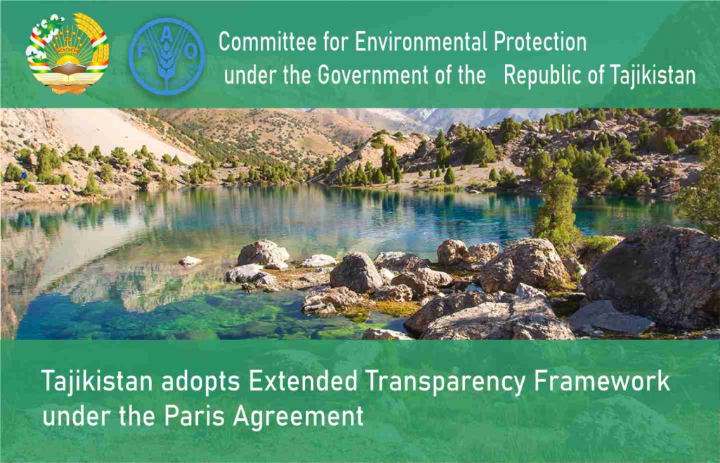Tajikistan adopts Extended Transparency Framework under the Paris Agreement
Tajikistan is transitioning to the Enhanced Transparency Framework of the Paris Agreement. FAO is developing a new project to support the country in preparing for the transition to the new framework.
Funding from the Global Environment Facility (GEF) is pending for the implementation of an FAO project to enhance national capacity in Tajikistan to ensure transparency in line with national priorities.
The project aims to help the government, the private sector and academia improve their reporting tools through the introduction of more up-to-date inventories of emission sources and sinks, incorporating guidance from the Intergovernmental Panel on Climate Change, and providing training and necessary support to make progress in the Enhanced Transparency Framework.
Discussion of the project began with an online stakeholder meeting on May 31, 2022. The participants participated in the project development process and also discussed ways to develop collaboration with various partners. The event was attended by FAO specialists, officials of the Committee of Environmental Protection under the Government of the Republic of Tajikistan, the Agency for Hydrometeorology (Hydromet), the Ministry of Agriculture and other, stakeholders.
It should be noted that the Paris Agreement is aimed at combating climate change and its consequences. By signing the document, Tajikistan, along with other countries, has committed to keep the increase in the average global temperature in the world to well below 2 degrees Celsius.
To achieve this goal, each country has developed individual climate commitments, known as nationally determined contributions. These reflect country-specific efforts to reduce emissions at the national level and to adapt to the effects of climate change. In addition, there are other provisions in the Paris Agreement that deal with climate change mitigation and regulation of adaptation to climate change in the country. At the global level, there is agreement to assist developing countries in their efforts to mitigate and adapt to climate change by providing a framework for transparent monitoring, reporting, and early achievement of countries' climate goals.
Participation and regular reporting under the Enhanced Transparency Framework allows governments to better assess and plan their climate actions. The framework will provide transparency on information related to countries' greenhouse gas emissions, progress made in reducing emissions and in adapting to the impacts of climate change, as well as on financial and technological support provided to developing countries.
The project contributes to the Transparency Capacity Initiative (CBIT) under the GEF-7 Mitigation Strategy to support projects that build institutional and technical capacity to meet the enhanced transparency requirements of the Paris Agreement.
CBIT seeks to:
- Strengthen national institutions for transparency in line with national priorities;
- Provide appropriate tools, training and assistance to meet the provisions of Article 13 of the Agreement;
- Promote transparency over time.

.png)
.png)









